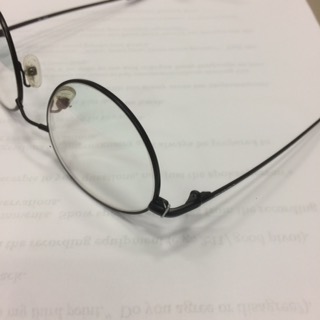Month: August 2016
I went hiking

The Potomac River in downtown DC.
By Billy Hathorn (Own work) [CC BY-SA 3.0 or GFDL], via Wikimedia Commons
Last weekend we drove about 15 minutes from our apartment to Great Falls National Park. Literally minutes from downtown DC, we found some nice hiking, and beautiful views of the river.
I have tamed my cables
Nerd Alert: this post is about a product that will appeal to nerds (and possibly only to nerds).
I have a lot of electronics cables: power cords, connection cords, headphones, etc. It’s important to tame your cords, otherwise you may end up with a terrible mess. This is especially important to me, for some reason. I just can’t stand messy cables.
For years, I used metal twist ties that you use to close garbage bags. They are ugly and break eventually. They get the job done, but it isn’t an elegant solution.
Several months ago, I found these cable tamers. I love love love them. They are tough, durable and reusable.
They come in different sizes. I bought a box of 3-inch ties. I use them for my phone charging cord, headphones, and various USB charging cables.
My cables are tamed, and my control-freak, borderline OCD need to tame my cables is satisfied. Cheaper than therapy, and less stigma than Prozac!
When is the last time you backed up your computer?
A former coworker once told me that there are two kinds of people in the world: those that have lost data, and those that will lose data. That was back in the 1990s. Back then, losing data meant losing some email, WordPerfect documents and Lotus 1-2-3 spreadsheet files. In the modern world, though, more and more of us have our entire photo collection, music collection, and movie collection on our computers. Losing that data is more serious. If When your computer dies, will you lose your data forever?
I have been a victim of digital data loss in the past, and now, I have a lot of photos and music on my computer. I have a paranoia about losing my data. I am pretty good at backing up my computer. For the last several years, my backup system consisted of an external hard drive. I’m a Mac user at home, and I like a program called Carbon Copy Cloner. It clones my hard drive, making an identical, bootable copy onto the external hard drive. If When my hard drive dies, I can boot from the external hard drive to access all of my data.
Hard drives are cheap and high-capacity. Many of them just require a USB cable, which serves as the power supply as well as the data connection.
Recently I used some of my BestBuy reward points to buy a flash drive. I’m amazed at how much capacity these buggers have, and how small they are.
We used to call these things “thumb drives.” This one could be called a “thumbnail drive.”
This little thing holds 128 gigabytes of data, and only costs $30.
It’s small and fast. Because flash memory has no moving parts, unlike a traditional hard drive, backing up is fast. It’s still bootable, so disaster recovery should be easy as well.
I’ve looked into online backup systems, where your data is backed up to the cloud. But my lifestyle probably doesn’t make that an option. I spend long times in countries that have low connection speeds and local governments that are “curious” about my data. So for the time being, physical backups will be the best choice for me.
How about you? When is the last time you backed up your computer? What’s your excuse for not backing up? More importantly, do you dare not to back up?
Public Diplomacy
I’m in “public diplomacy” training now, in preparation for my next job in Vietnam. The training is enjoyable, and it’s clear that my next job will be different from my last job.
Coincidentally, I just finished this interesting book: “Dirty Diplomacy.” The author was the ambassador from the UK to Uzbekistan starting in 2003.
This guy had an amazing experience before he got fired. He did some wonderful things that an ambassador should do. He traveled around the country in the attempt to learn what was really happening in the country. That helped him to be an effective advocate for British businesses operating in Uzbekistan. It also made his reports back to Britain more accurate.
He also learned about the terrible government corruption and human rights violations in the country. And he had the courage to call out the host government on the abuses. He wasn’t a very diplomatic diplomat. But even though he publicly embarrassed the host government, the result was that the president of the country seemed to respect him more.
He also did some things that an ambassador shouldn’t do. He made some unwise choices with his personal life that would definitely get me in trouble if I did them. In fact, I would probably lose my job if I did some of the things that he did.
The author described the inner workings of the British foreign service. It was fun for me to compare the workings of the UK Foreign Office and the U.S. State Department.
Then last weekend I re-watched the movie “Good Night and Good Luck.” The film tells the back story of the famous media battle between Edward R. Murrow and Joseph McCarthy.
The movie is more relevant to me now because of what Murrow did later in life. He left television journalism and became the Director of the United States Information Agency in 1961. That agency later became part of the State Department. It became the “public diplomacy” area of specialization, which is my current specialty.
Between training, reading books and watching movies, I’m overdosing a little bit on diplomacy. Time to branch out and do something different. Maybe I’ll go hiking.
Is it just me, or is this not a good book?
I tried, I really tried. One of my sisters is an author. She says that she gives books 50 pages. If the book doesn’t hold her interest by then, she cuts her losses and abandons the book.
Her policy inoculated me from guilt at not finishing this book. If a professional word-person gives me permission not to read a book that I don’t want to read, I’m taking it.
This book was a free give-away from Amazon to Kindle owners. I didn’t waste any money on the book, but it sure cost me some time. I gave this book a lot more than 50 pages. My Kindle says that I was 80% through, before I finally put it down in confusion. I just couldn’t finish it. I tried, but then I started daydreaming about cutting my fingernails or ironing my shirts. It says something about a book when you make excuses not to read it. It says: “I don’t want to read this book.”
Cold tries to be an international thriller. But it fails to thrill. I take some of that back. In fact, it has a very gripping scene of revenge that was horrifyingly violent. But it didn’t come until the second or third chapter, which is not where you should put a scene that it supposed to grab the reader’s attention. The rest of the story is hard to follow. The characters are not sympathetic. Maybe it’s too British. Maybe I don’t understand English culture enough. Maybe I know too much about world politics to be wowed by jumping from one country to the other.
Maybe it’s me.
Or maybe it’s just a poorly-written book.
Either way, I’m not finishing it.
Getting revenge for my wife
A few months ago, when we were still in China, my wife almost fell for a telephone scam. Phone scammers are good. They know just what to say to get you to believe them. Chinese scammers are especially good. This guy had my poor wife almost believing that he was with the police, and there were pending criminal charges against her. Apparently, that particular scam is very sophisticated. It ends with the victims giving the scammer their bank account information. The end result, of course, is that the scammers take money from the victims. Which is the whole point of scams. Happily, my wife eventually smelled a rat, and ended the call before any damage was done. The only loss was some wasted time and a bruised ego.
This afternoon I got a call on my cell phone. It showed up as being from an “unknown” number. That’s warning sign #1. A reputable caller would never block his number. In fact, showing the number indicates that the caller has nothing to hide. So I was suspicious even before I answered the phone. The guy on the line had a very thick Indian accent. He said that he was from the United States Government. Yeah, right. He said that he was calling to give me information about my “grant.” Yeah, right. He said that I didn’t have to do anything, and that I would receive $9,700. Yeah, right.
What he didn’t know is that unlike him, I actually have experience with federal grants. Also, unlike him, I actually do work for the United States government. I had a few minutes to kill (I was making permanent repairs to my eyeglasses, see my previous post), so I put the clown on speakerphone and toyed with him.
He tried to start in on his script, which was pretty transparently a scam. I derailed him every few seconds.
Where do you work?, I demanded. Where are you calling from? What department of the United States government do you work for? What is the weather like in Washington D.C. now? How do you get to work? What monuments are near you workplace?
Of course, the guy was unable to answer any of these questions. He kept trying to get back on his script, but I wouldn’t let him. He would start to talk in vague terms, and I would interrupt him demanding details. For someone who likes to argue (boy, do I like to argue!), it was a lot of fun.
After 22 minutes of this, the guy finally lost his cool. He asked me if I was a douche bag. That’s when I knew that the call was almost over. He had given up. I told him yes, I probably am a douche bag. Are you a douche bag? He hung up.
By wasting 22 minutes of his time, I prevented him from trying to scam anyone else for 22 minutes. Besides, it was dinner time, my glasses were fixed, and I was hungry.
What did you do today?
















